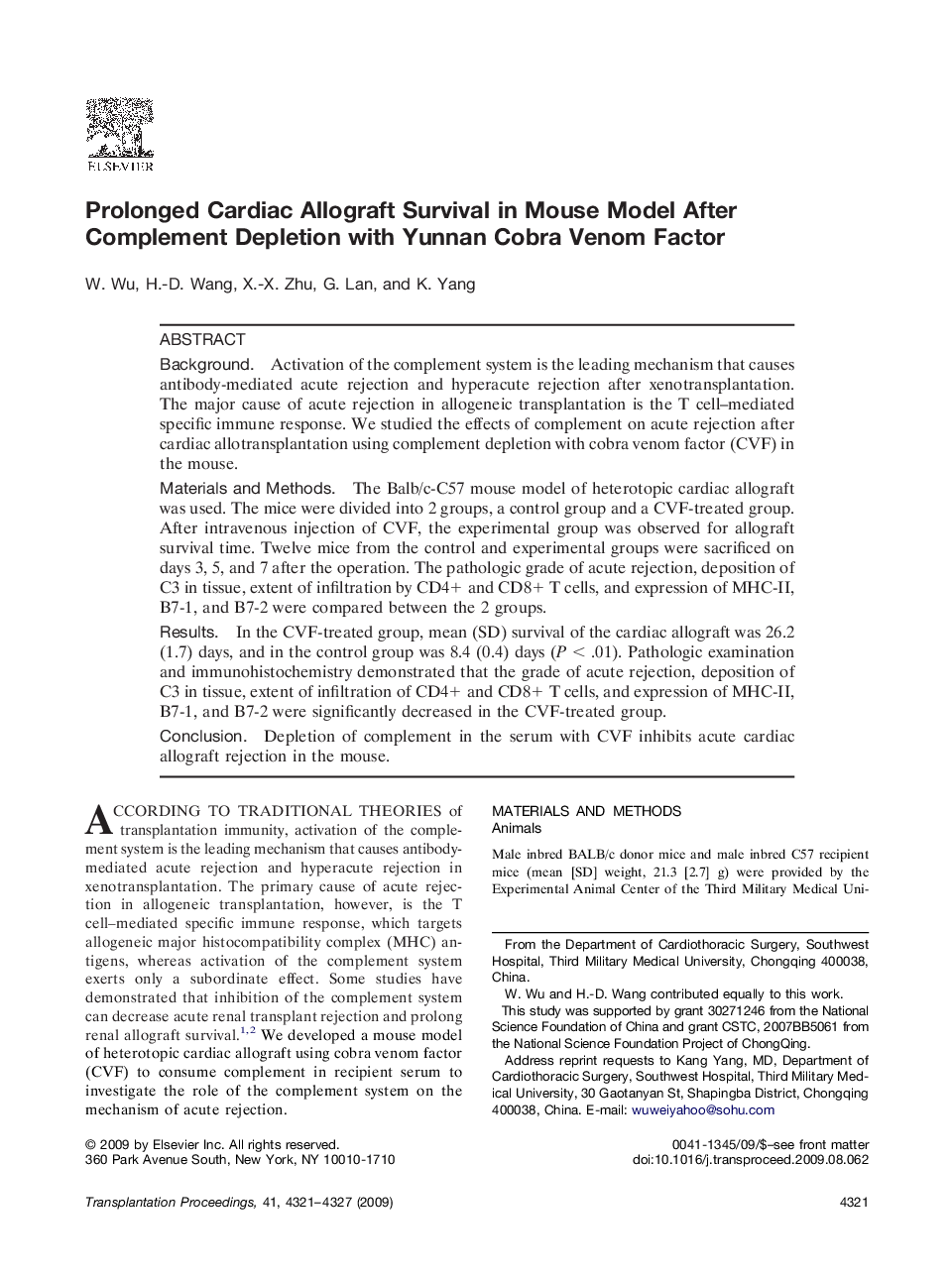| Article ID | Journal | Published Year | Pages | File Type |
|---|---|---|---|---|
| 4258512 | Transplantation Proceedings | 2009 | 7 Pages |
BackgroundActivation of the complement system is the leading mechanism that causes antibody-mediated acute rejection and hyperacute rejection after xenotransplantation. The major cause of acute rejection in allogeneic transplantation is the T cell–mediated specific immune response. We studied the effects of complement on acute rejection after cardiac allotransplantation using complement depletion with cobra venom factor (CVF) in the mouse.Materials and MethodsThe Balb/c-C57 mouse model of heterotopic cardiac allograft was used. The mice were divided into 2 groups, a control group and a CVF-treated group. After intravenous injection of CVF, the experimental group was observed for allograft survival time. Twelve mice from the control and experimental groups were sacrificed on days 3, 5, and 7 after the operation. The pathologic grade of acute rejection, deposition of C3 in tissue, extent of infiltration by CD4+ and CD8+ T cells, and expression of MHC-II, B7-1, and B7-2 were compared between the 2 groups.ResultsIn the CVF-treated group, mean (SD) survival of the cardiac allograft was 26.2 (1.7) days, and in the control group was 8.4 (0.4) days (P < .01). Pathologic examination and immunohistochemistry demonstrated that the grade of acute rejection, deposition of C3 in tissue, extent of infiltration of CD4+ and CD8+ T cells, and expression of MHC-II, B7-1, and B7-2 were significantly decreased in the CVF-treated group.ConclusionDepletion of complement in the serum with CVF inhibits acute cardiac allograft rejection in the mouse.
